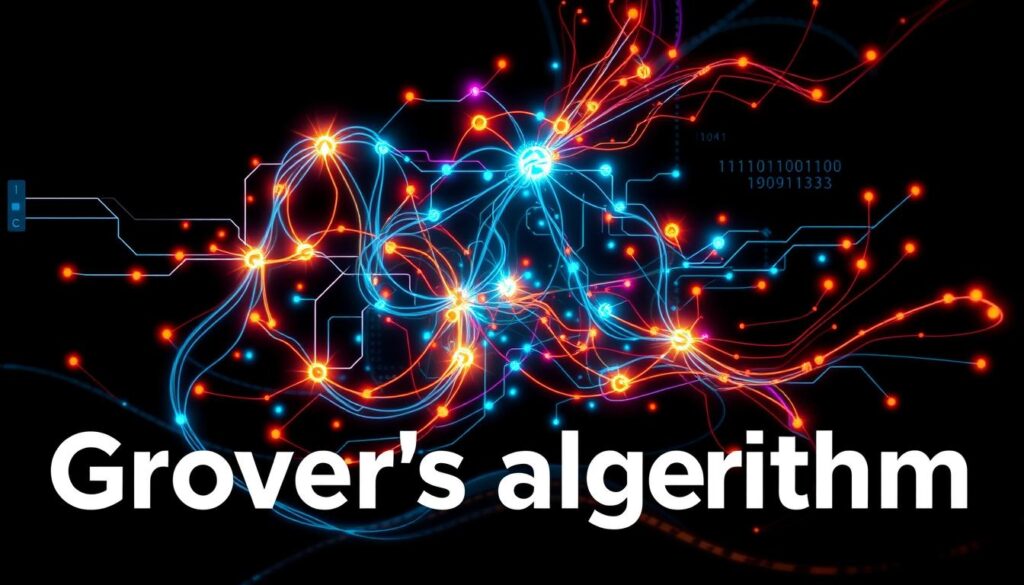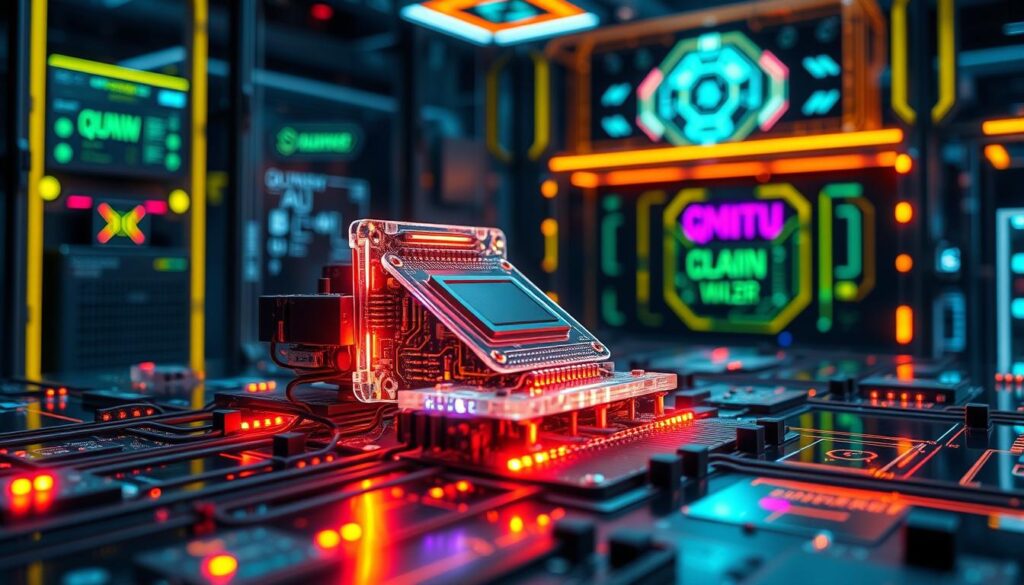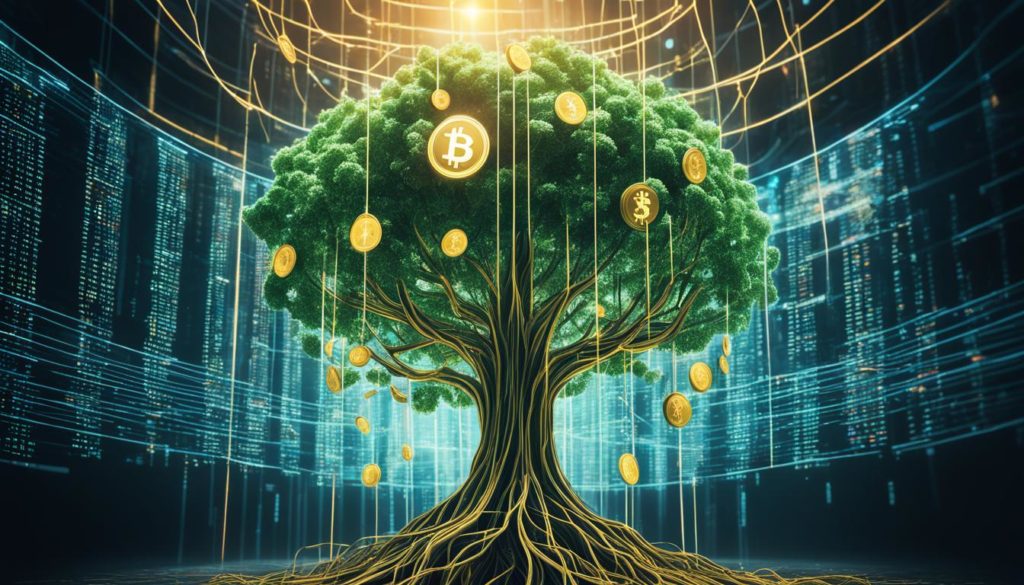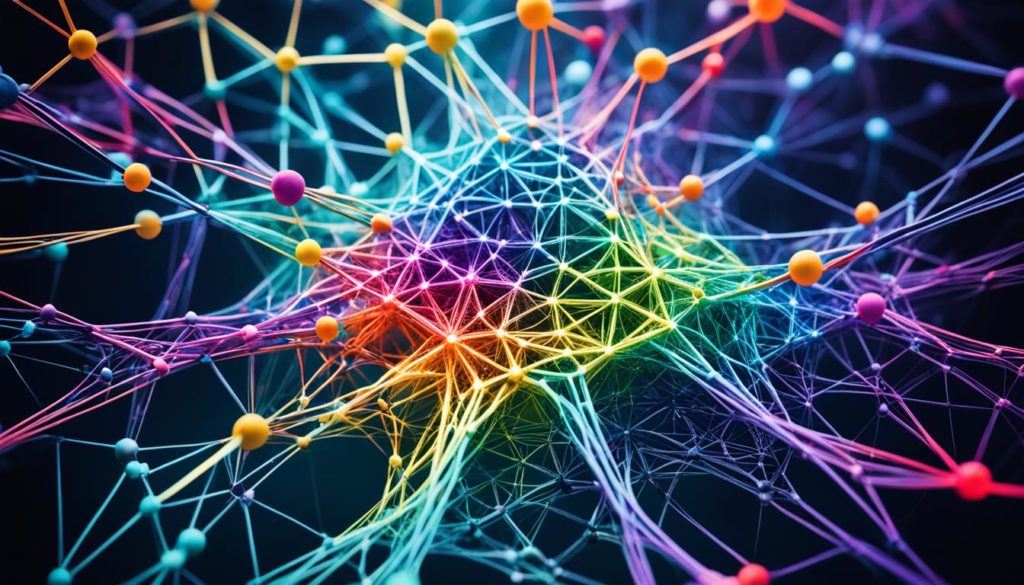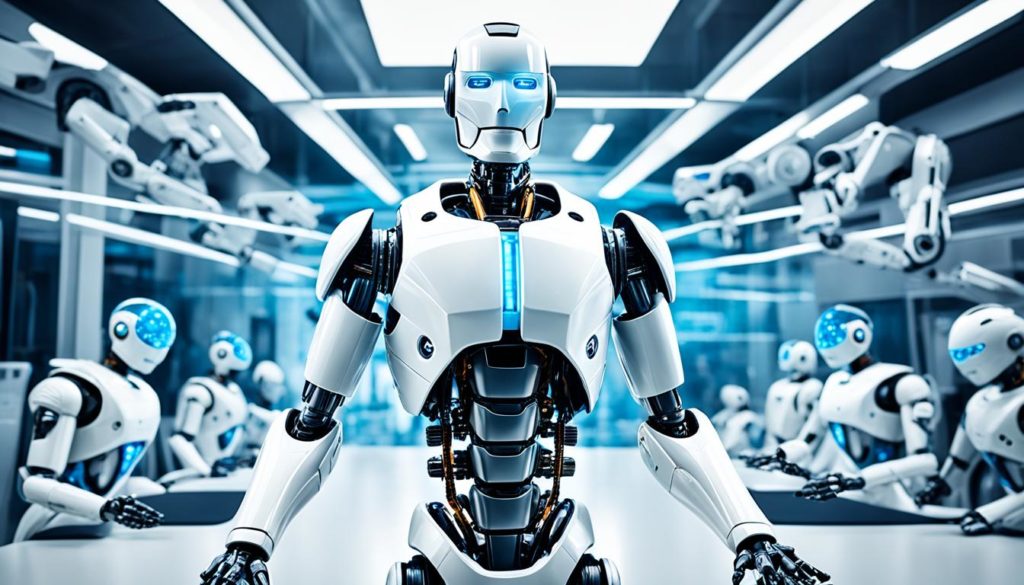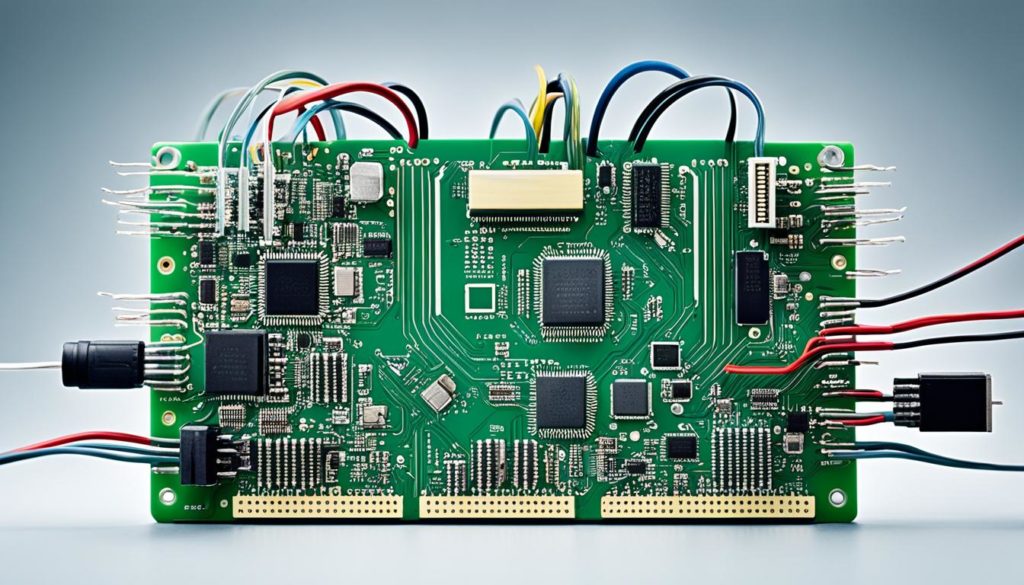
Did you know quantum computers could break current encryption standards? This is a big challenge for our cybersecurity. But there’s more. What is quantum computing? It’s at the forefront of technology, using quantum mechanics to process information in new ways.
Unlike regular computers, quantum computers use qubits. Qubits can be in many states at once, thanks to quantum superposition. This lets quantum computers solve complex problems much faster and more efficiently than regular computers. This is leading to big changes in many fields.
Learning about quantum technology is key to understanding these powerful machines. We need to know about qubits, quantum superposition, and entanglement. We also need to learn about important quantum algorithms like Shor’s and Grover’s. Quantum computing has many uses, from finding new medicines to making our searches better and keeping our data safe.
As Google and IBM keep pushing the limits of what’s possible, what we learn today will help us make big discoveries tomorrow. To learn more about this exciting topic and get your questions answered, check out our detailed guide on quantum computing: Unveiling the Secrets of Quantum Computing: A Beginner’s.
Key Takeaways:
- Quantum computing uses quantum mechanics to process information in new ways.
- Qubits, unlike classical bits, can represent multiple states simultaneously due to quantum superposition.
- Key algorithms like Shor’s and Grover’s are paving the way for advancements in cryptography and search capabilities.
- Real-world applications of quantum computing include drug discovery, financial modeling, and cybersecurity.
- Companies like Google and IBM are at the forefront of quantum computing research and development.
What is Quantum Computing
Quantum computing is a new field that could change how we handle data. It uses quantum mechanics to do calculations much faster. This is thanks to qubits, which are different from the bits used in regular computers.
Introduction to Quantum Mechanics
Quantum mechanics is the foundation of quantum computing. It’s about the tiny world where things act like waves. Quantum superposition and entanglement are key to quantum computers’ power.
Big names like IBM and Google are leading in quantum tech. But, making more than 128 standard qubits is a big challenge for scaling quantum computers.
Qubits: The Foundations of Quantum Information
Qubits are the basic units of quantum computing. They can be 0, 1, or both at the same time. This lets quantum computers process lots of data at once.
Quantum computing has huge potential. For example, Google AI and NASA reached quantum supremacy with a 54-qubit machine in 2019.
Quantum Superposition and Entanglement Explained
Quantum superposition lets qubits be in many states at once. This boosts a quantum computer’s power. For example, adding more qubits increases the state space dimension.
Quantum entanglement connects qubits so their states affect each other, no matter the distance. This is shown in the Bell state, where entangled qubits have linked probability amplitudes. A December 2023 report showed progress in entangling individual molecules for quantum computing.
Companies like Alibaba offer quantum machines, and Volkswagen uses them for electric vehicle battery simulations. Pharmaceutical companies use quantum computers for drug analysis. Airbus uses them for fuel-efficient flight paths.
Key Quantum Algorithms and Their Impact
Quantum algorithms are changing how we solve problems on computers. We’ll look at Shor’s algorithm, Grover’s algorithm, and the Quantum Approximate Optimization Algorithm (QAOA). These algorithms have big potential and many uses.
Shor’s Algorithm: Revolutionizing Cryptography
Shor’s algorithm can factor big numbers way faster than old computers. A quantum computer with millions of qubits can do this in about 100 seconds. Old computers would take over 1 billion years.
This makes old encryption methods unsafe. Now, we need new, safe ways to encrypt data.
Grover’s Algorithm: Enhancing Search Capabilities
Grover’s algorithm makes searching databases much faster. It’s up to 500 times quicker than old computers. This helps a lot in fields like data mining and big data.
It shows how quantum computers can change our world, especially with all the data we have.
Quantum Approximate Optimization Algorithm (QAOA)
The Quantum Approximate Optimization Algorithm, or QAOA, helps solve hard problems. It’s good for graph theory, machine learning, and more. QAOA uses quantum mechanics to solve problems better than old computers.
This leads to big improvements in science and industry.
| Algorithm | Primary Advantage | Application Area |
|---|---|---|
| Shor’s algorithm | Exponential speedup in factoring | Cryptography, Security |
| Grover’s algorithm | Quadratic search speedup | Data Mining, Big Data Analytics |
| QAOA | Efficient solution to optimization problems | Graph Theory, Machine Learning, Energy Optimization |
Quantum Computing Hardware Platforms
Exploring quantum computing hardware, we find different platforms with unique benefits. They use various qubits like superconducting, ion traps, photonic, and topological qubits. Each type is best for certain quantum tasks.
Superconducting Qubits
Superconducting qubits are a key area of research. IBM, Google, and Rigetti lead in this field. They use superconductors to keep quantum states stable at very low temperatures.
IBM has built a 433-qubit quantum computer. This shows the potential for big quantum processors.
Ion Traps
Ion traps use electric fields to control ions as qubits. Companies like Quantinuum and IonQ are making progress here. IonQ has a 32-qubit quantum computer with a quantum volume over 4 million.
This highlights the precision and quality of ion trap technology. It uses electromagnetic fields to control ions, showing deep control in quantum operations.
Photonic Qubits and Topological Qubits
Photonic qubits use photons for quantum communication and cryptography. They use quantum light sources for photon-based computations. This makes data transmission secure and efficient.
Topological qubits, led by Microsoft’s Station Q, are promising for fault-tolerant computing. They are more stable against noise and interference, making them reliable.
In summary, advancements in quantum computing hardware are making computers more powerful and efficient. Platforms like superconducting qubits, ion traps, photonic qubits, and topological qubits are key. They help us solve different quantum problems, from fast computations to secure data transfer.
| Platform | Company | Notable Feature |
|---|---|---|
| Superconducting Qubits | IBM, Google, Rigetti | High-speed computations, large-scale quantum processors |
| Ion Traps | Quantinuum, IonQ | Precision, high-fidelity measurements, quantum volume of over 4 million |
| Photonic Qubits | Various | Quantum communication, quantum cryptography |
| Topological Qubits | Microsoft (Station Q) | Fault-tolerant quantum computing, robustness against interference |
Real-World Applications of Quantum Computing
Quantum computing has many practical uses across different fields. It’s especially changing the game in pharmaceuticals, finance, and cybersecurity.
Drug Discovery and Optimization
In pharmaceuticals, quantum computing speeds up finding new drugs. It does this by simulating how molecules interact with great accuracy. This could cut down the time and cost of bringing new medicines to market.
Big names like Pfizer and Roche are using quantum computing to change how drugs are made. They’re making it faster and more efficient.
Financial Modeling and Risk Assessment
Quantum computing is also making a big impact in finance. It helps with big data analysis, portfolio optimization, and risk assessment. Companies like JPMorgan Chase and Goldman Sachs are looking into quantum algorithms for better calculations.
Experts think a 50-qubit quantum processor could match current production by 2024. A 300-qubit processor might be ready for industry use by then. This could be a game-changer for financial analysis, making it faster and more accurate.
Cybersecurity: Quantum Cryptography
Quantum computing is also key in cybersecurity. It uses quantum key distribution (QKD) for super-secure encryption. This makes digital communications safer from cyber threats.
In 2022, Ernst & Young (EY) started the Quantum-Secured Metro Network (QSMN). It uses Toshiba’s QKD hardware for top-notch data protection. This shows how important quantum cryptography is for keeping information safe.
Quantum computing has a huge potential in many areas. For more on its advancements and current state, check out the article here.
| Industry | Quantum Computing Application | Notable Companies |
|---|---|---|
| Pharmaceuticals | Quantum Drug Discovery | Pfizer, Roche |
| Finance | Quantum Financial Modeling | JPMorgan Chase, Goldman Sachs |
| Cybersecurity | Quantum Cryptography | Ernst & Young, Toshiba |
Conclusion
Quantum computing is changing our future in big ways. It started in the 1980s with Richard Feynman’s idea. Since then, we’ve seen huge steps forward. Companies like IBM, Google, and Microsoft are leading the effort, investing a lot in research.
Quantum computers use qubits that can be in many states at once. This makes them much faster than regular computers. They can solve complex problems like predicting the weather and finding new medicines.
Even though quantum computing is still new, it’s already making a big difference. It’s helping in fields like security, learning machines, and big data. But, there are still challenges like keeping it stable and making it affordable.
Companies like IBM and Google are working hard to solve these problems. They want to make quantum computers even better. As we move forward, we’re on the edge of a new era. It’s going to change our world in amazing ways.
FAQ
What is quantum computing?
Quantum computing is a new tech that uses quantum mechanics. It uses qubits instead of bits for calculations. Qubits can do many things at once, making quantum computers super fast.
How do qubits differ from classical bits?
Classical bits are just 0 or 1. But qubits can be many things at once because of quantum superposition. They can also be connected in a way that lets one affect the other, even if they’re far apart.
What is quantum superposition?
Quantum superposition means a quantum system can be in many states at once. For quantum computers, this means they can do lots of calculations at the same time. This makes them much more powerful.
What is quantum entanglement?
Quantum entanglement is when two or more qubits are connected. This means the state of one can change the state of another, no matter how far apart they are. This connection is key for many quantum computing tasks.
What are some key quantum algorithms?
Important quantum algorithms include Shor’s and Grover’s. Shor’s can break big numbers fast, which is a problem for some encryption. Grover’s helps find things in big databases quickly. The Quantum Approximate Optimization Algorithm (QAOA) solves complex problems.
How does Shor’s algorithm impact cryptography?
Shor’s algorithm can break big numbers fast, which is a big problem for encryption. This means we need new ways to keep data safe.
What is the Quantum Approximate Optimization Algorithm (QAOA)?
The Quantum Approximate Optimization Algorithm (QAOA) helps solve hard problems better than old methods. It’s great for solving big logistical problems in many fields.
What types of qubits are used in quantum computing hardware?
There are many types of qubits, each with its own benefits. Superconducting qubits need to be very cold. Ion traps use electric fields to control ions. Photonic qubits use photons for quantum communication. Topological qubits are very stable.
What are the applications of quantum computing in drug discovery?
Quantum computing can make drug discovery much faster. It can simulate how molecules work, leading to new medicines and treatments.
How can quantum computing benefit the financial sector?
Quantum computing can handle big data and make financial decisions better. It can optimize investments and do risk assessments more accurately than old methods.
What is quantum cryptography?
Quantum cryptography uses quantum mechanics for super-safe encryption. It makes digital communications much more secure, protecting against cyber threats.
Future App Studios is an award-winning software development & outsourcing company. Our team of experts is ready to craft the solution your company needs.


